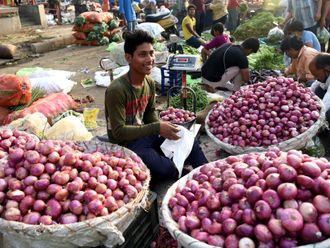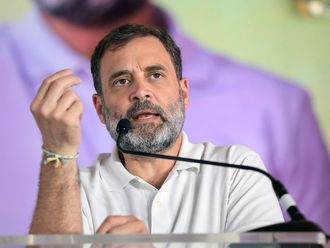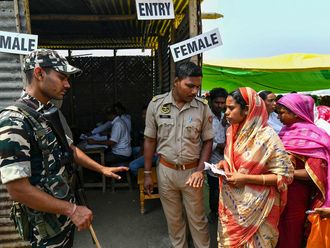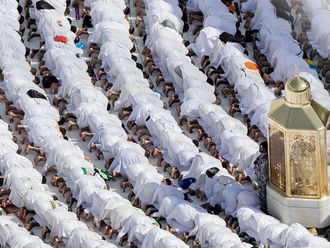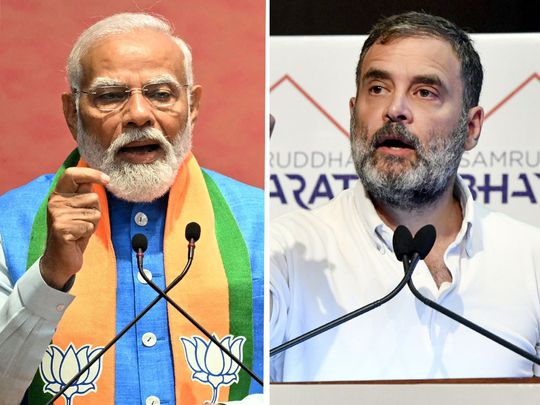
NEW DELHI: India’s Election Commission said on Thursday it has sought responses from the ruling Bharatiya Janata Party (BJP) and the opposition Congress on alleged violations of poll rules by Prime Minister Narendra Modi and opposition leader Rahul Gandhi.
India is holding the world’s largest election over seven phases, with votes due to be counted on June 4.
The second phase of the 2024 Lok Sabha elections will be held on Friday in several states. In total, 89 Lok Sabha seats across 13 states and Union territories (UTs) will go to the polls in the second phase on April 26.
In the second phase of voting for the Lok Sabha elections, 89 seats across 12 states and UTs will go to polls on Friday.
By the end of the day, a third of the total 543 Lok Sabha seats — including all the seats in Kerala, Rajasthan, Manipur and Tripura, and 14 of the 28 seats in Karnataka — will have completed polling. In Outer Manipur, 13 Assembly segments are voting in the second phase; the remaining 15 had voted in the first phase along with the Inner Manipur seat.
In their complaints to the election commission, the BJP accused Gandhi and Congress accused Modi of making divisive speeches on religion, caste and linguistic issues, notices from the panel said.
Modi, who is seeking a rare third consecutive term, referred to Muslims as “infiltrators” and “those who have more children” during a campaign speech on Sunday, drawing widespread criticism from opposition groups and a complaint from Congress to the poll panel.
The BJP has said in its complaint that Gandhi sought to create divisions based on linguistic and cultural issues.
The election panel has sought responses from BJP president J.P. Nadda and Congress president Mallikarjun Kharge by April 29.
Why were notices issued to party bosses?
Neither notice sent to BJP and Congress bosses named the senior leaders against whom complaints had been made — Prime Minister Modi and Rahul Gandhi. Also, each notice contained copies of the rival’s complaint, according to NDTV.
For the first time, party bosses have been held accountable for violations in a campaign speech under Section 77 of the Representation of People Act, which allows parties to name ‘star campaigners’ and they, therefore, have been called on to regulate their speeches.
In a two-page statement issued on Thursday morning, the ECI declared ’star campaigners’ (Prime Minister Modi and Rahul Gandhi have been listed as such) are expected to contribute to a higher quality of discourse... which sometimes gets distorted in the heat of the contests at the local level”.
The ECI said that it is of the “considered view parties will have to take primary and increasing responsibility for the conduct of their candidates in general, and star campaigners in particular”.
“Campaign speeches by those holding high positions are of more serious consequence.”
The EC also said that “while individual star campaigners will continue to remain responsible for speeches made, the commission will address party presidents/head of party on a case-to-case basis”.
Sources pointed to NDTV transgressions by Congress leader Supriya Shrinate and the BJP’s Dilip Ghosh earlier this month. In both those cases, the Election Commission - which ruled the two made “low-level personal attacks” - issued notices of censure directly to the leaders in question.


